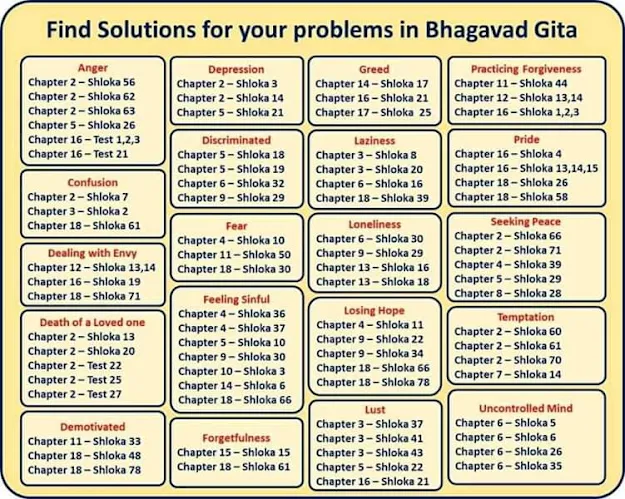Anger Management:
2.56. He whose mind is not shaken by adversity, who does not hanker after pleasures, and who is free from attachment, fear and anger, is called a sage of steady wisdom.
2.62. When a man thinks of the objects, attachment to them arises; from attachment desire is born; from desire anger arises.
2.63. From anger comes delusion; from delusion the loss of memory; from loss of memory the destruction of discrimination; from the destruction of discrimination he perishes.
26. Absolute freedom (or Brahmic bliss) exists on all sides for those self-controlled ascetics who are free from desire and anger, who have controlled their thoughts and who have realised the Self.
16.1. Fearlessness, purity of heart, steadfastness in Yoga and knowledge, alms-giving, control of the senses, sacrifice, study of scriptures, austerity and straightforwardness.
16. 2. Harmlessness, truth, absence of anger, renunciation, peacefulness, absence of crookedness, compassion towards beings, un-covetousness, gentleness, modesty, absence of fickleness.
16.3. Vigour, forgiveness, fortitude, purity, absence of hatred, absence of pride—these belong to one born in a divine state, O Arjuna!
16.21. Triple is the gate of this hell, destructive of the self—lust, anger, and greed,—therefore, one should abandon these three.
Other Management rules from Bahagavad Gita are available in next blog.
Subscribe / flow for notification.


No comments:
Post a Comment